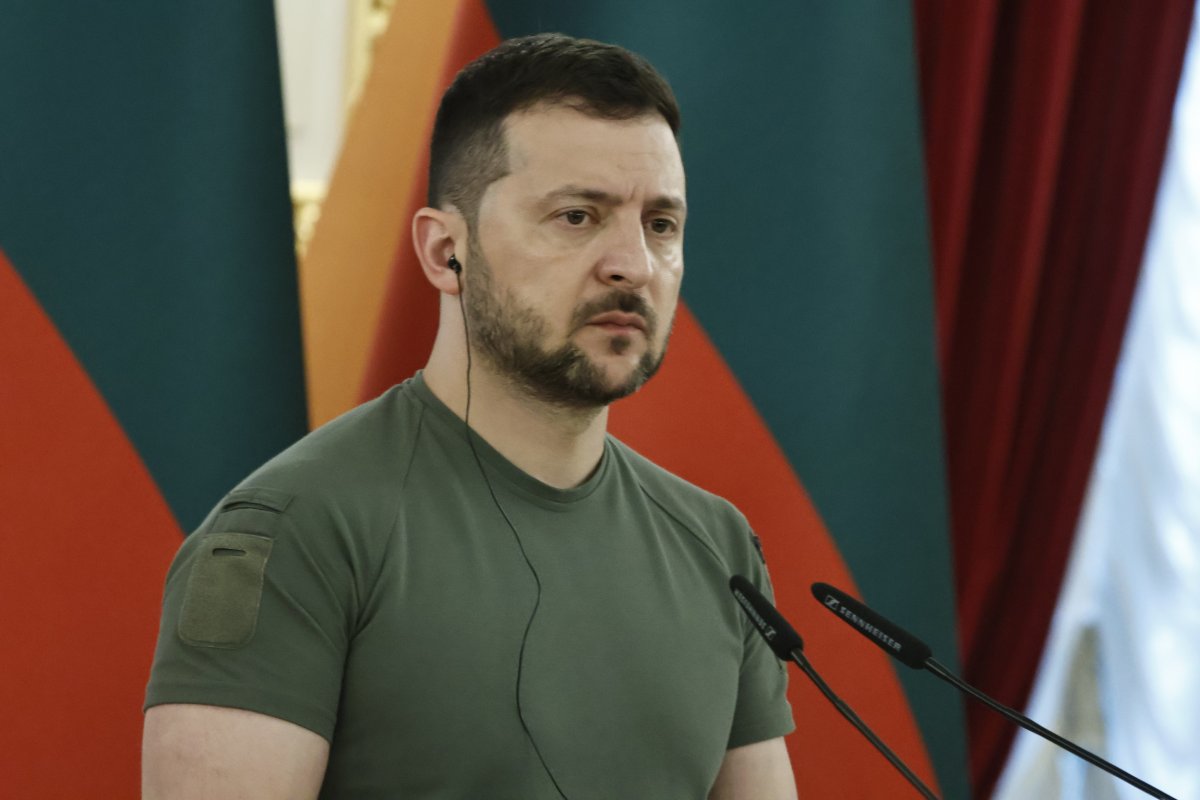Russia could blow up the Zaporizhzhia nuclear power plant (ZNPP) after handing it back over to Kyiv, Ukrainian President Volodymyr Zelensky warned on Saturday.
Zaporizhzhia, Europe's largest nuclear power plant, has long been a focus point in the Russia-Ukraine war, launched by Russian President Vladimir Putin last February. Both Ukrainian and Russian forces have fought for control of the plant, and combat around it has sparked concerns about the potential for a nuclear explosion, which would have devastating consequences for the surrounding area. Last month, Ukraine launched a counteroffensive aimed at reclaiming occupied territory in the Zaporizhzhia region, with authorities warning about a potential Russian attack at the facility.
Zelensky on Saturday issued a new warning about a "serious threat" at the ZNPP.
"We know for sure that this was considered by the Russian Federation as one of the plans, so that later, when the station is handed over to us, to detonate it remotely for the release, and this is also very dangerous," Zelensky said, according to The Kyiv Independent.

He urged the International Atomic Energy Agency (IAEA) to "thoroughly" inspect the power plant if Russia opts to hand the plant over to Ukraine.
Zelensky's warning comes amid increased concerns about the ZNPP. The Ukrainian president said last month that intelligence reports indicate that Putin is considering to launch a terrorist attack at the nuclear plant through radiation leakage. Ukraine has long accused Russia of weaponizing the power plant in their "aggression."
"We take all such reports very seriously and I have instructed our experts at the site to look into this matter and request the access they need for doing their job. Until now they have not observed any mines or other explosives. Further access will still be needed," IAEA's Director General Rafael Grossi said on the IAEA's website on Friday.
The IAEA has found "no visible indications of mines or other explosives" at the Zaporizhzhia plant, but experts still need "additional access to carry out further such checks at the site," according to a statement the organization sent to Newsweek on Saturday.
"Intelligence has received information that Russia is considering a scenario of a terrorist attack at the Zaporizhzhia Nuclear Power Plant. A terrorist attack with radiation leakage. They have prepared everything for this," Zelensky said during a video address that was shared to social media Thursday.
Moscow, however, has denied Zelensky's allegations about a potential attack using the power plant, pointing to a "high assessment" from the IAEA.
"The nuclear safety and security situation at the Zaporizhzhia Nuclear Power Plant is extremely fragile," Grossi said on Wednesday, who traveled to the plant last month. "Now more than ever, all sides must fully adhere to the IAEA's basic principles designed to prevent a nuclear accident. We will intensify our efforts to help ensure nuclear safety and security, while also providing assistance to the affected region in other ways."
A spokesperson for the International Campaign to Abolish Nuclear Weapons (ICAN) wrote in a statement to Newsweek that any explosion at the plant "could have catastrophic consequences as Chernobyl showed."
"We urge all sides to respect the IAEA call for a demilitarised zone around the Zaporizhzhia power station," ICAN's statement reads.
Newsweek reached out to Zelensky's office for comment via email.
Ukraine's Main Directorate of Intelligence at the Ministry of Defense said on Friday that Russia has gradually been reducing the number of personnel at the plant, Reuters reported and that three employees of Rosatom, a Russian state nuclear firm, were among the first to leave the plant.
In addition, the Associated Press reported on Thursday that Ukraine held drills in the region to prepare for a potential radiation leak.
Update 07/02/2023, 8:38 a.m. ET: This article was updated with comment from ICAN.
Uncommon Knowledge
Newsweek is committed to challenging conventional wisdom and finding connections in the search for common ground.
Newsweek is committed to challenging conventional wisdom and finding connections in the search for common ground.
About the writer
Andrew Stanton is a Newsweek weekend reporter based in Maine. His role is reporting on U.S. politics and social issues. ... Read more
To read how Newsweek uses AI as a newsroom tool, Click here.








